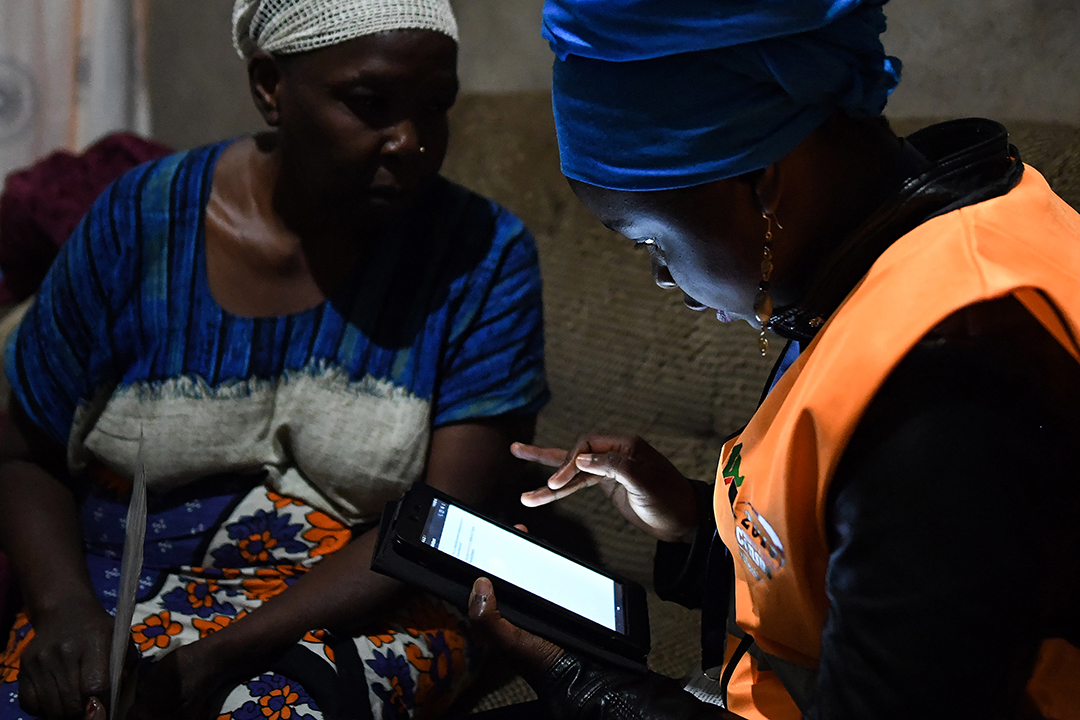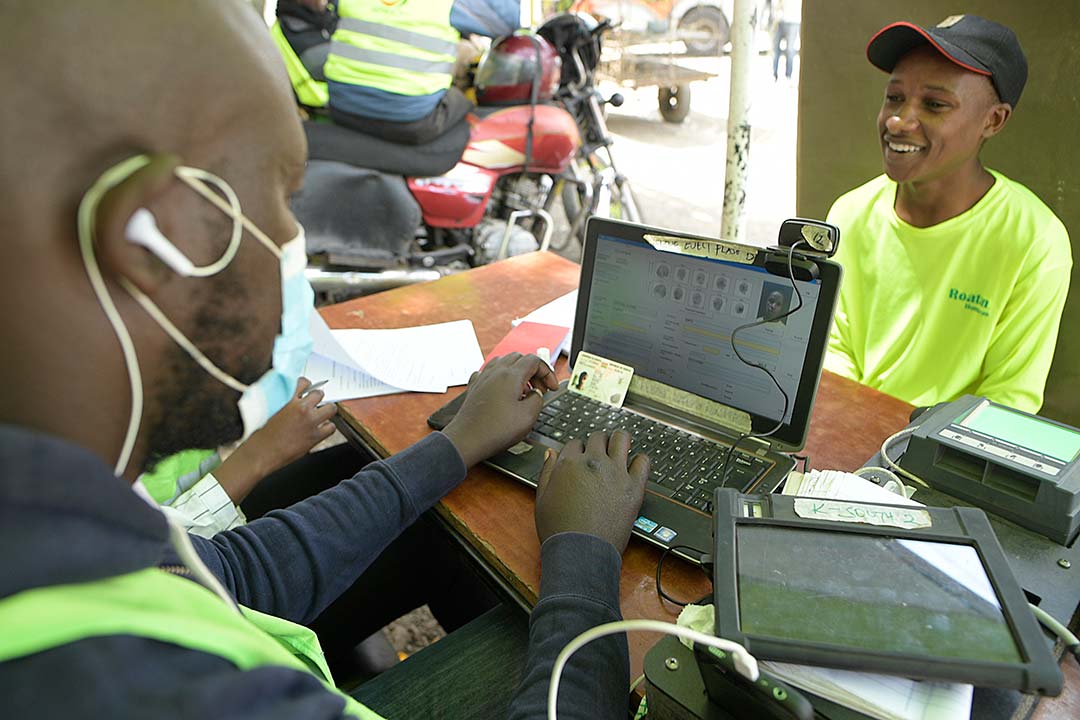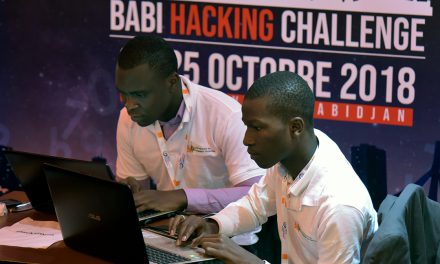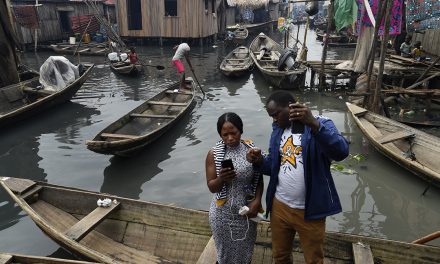Contested election outcomes are common in Kenya and have been experienced in every election cycle, increasing in intensity since the advent of multipartyism some 30 years ago. The situation has resulted in numerous legal challenges and street protests over claims of lack of transparency and irregularities in vote counting, tallying and tabulation, more so for presidential candidates.

Census taking in Nairobi, Kenya, August 2019. Photo: Simon Maina/AFP
The perception that the national electoral body, the Independent Electoral and Boundaries Commission (IEBC), restricts access to data and that the results are “predetermined” has contributed to a loss of trust in the electoral system. Kenyans, in fact, commonly say that in the election process, the voter does not matter in determining election outcomes, rather it is whoever counts the ballot papers!
Every election cycle witnesses numerous cases disputing and contesting election results, from the presidency to the lowest elective office of the ward representative. In 2007, for example, a disputed presidential election led to skirmishes along ethnic lines in which at least 1,300 people were killed and 600,000 displaced across the country.
But a decade later, in 2017, Kenya’s Supreme Court nullified the re-election of the then sitting – and current – president, Uhuru Kenyatta. In what was described as a historic judgment, Supreme Court Chief Justice David Maraga declared the result invalid, with the submission that the votes had been electronically manipulated to assure a victory for Kenyatta. Inconsistency in the election data released to the public, the IEBC’s inability to provide certain aspects of data the Supreme Court had demanded, and other irregularities, largely informed the court’s decision to order a repeat election.

Officials in Nairobi from the Independent Electoral and Boundaries Commission (IEBC) register a voter in preparation for Kenya’s election in August 2022. Photo Simon Maina / AFP
Earlier, in cementing access to information by its citizens, Kenya enacted the Access to Information Act on 21 September 2016. The act reinforces Article 35 of the constitution of Kenya 2010, which guarantees every Kenyan the right to seek access to and obtain information from public and private bodies acting in a public nature.
Kenya has also ratified global and regional instruments, including Article 19 of the International Covenant on Civil and Political Rights, and Article 9 of the African Charter on Human and Peoples’ Rights.
The IEBC is responsible for providing data on polling stations, dates and times for voting, and other data on election timelines and processes. It also provides citizens with information about the verified identification requirements needed for voting, as well as the numbers of registered votes and polling stations at ward, constituency, and county level.
As Alphonse Shiundu, the Kenya editor of Africa Check, a non-profit fact-checking organisation that promotes accuracy in public debate and in the media, points out: “All this information has to be publicly available to voters ahead of elections. Afterwards, the electoral commission is duty-bound to publish election results, in fully completed designated statutory forms, and make this available to the public, showing the results for all the candidates.” And this information must be published and publicised in a transparent and verifiable manner.
Grant Masterson, the head of the Governance Programme at the Electoral Institute for Sustainable Democracy in Africa (EISA), a South African based NPO, points out that lack of access to election data and information, in general, reinforces existing perceptions of electoral processes as illegitimate and untrustworthy.
“Conversely, enhanced transparency, combined with other trust-building measures, is one of the most effective ways of strengthening trust in the electoral process,” Masterson said.
With elections representing a potential disruption to a political party or individual’s ability to secure rents, he added, the temptation to fraudulently manipulate election results was ever-present, especially in places where elections were highly polarised, and systems favoured winner-take-all results. Unsurprising, then, that voters regularly express very little trust or confidence that politicians will act in voters’ interests.
In these environments, Masterson said, transparency did not provide a “silver bullet” to fix the trust deficit. However, by building greater transparency and accountability within key institutions like the Election Management Body (EMB), the security forces, and promoting a free and independent media, trust in the legitimacy of electoral processes could be restored.
In Kenya, while improving the implementation of the Access to Information Act has had its challenges, IEBC efforts to improve access to data seem to be bearing fruit.
Africanus Obwogo, a civil society activist in Busia County, said the IEBC appeared to have learnt from past events and was keen to put its house in order. “We have seen them release data to the media, and on their website, and are keen to conduct a transparent accreditation for observers and the media. Digital devices such as phones and internet connectivity [also] enhance access to data and transparency,” he noted.
Constitutional Lawyer Bobby Mkangi, who was a member of the committee of experts that drafted Kenya’s 2010 constitution currently in use, told Africa in Fact it was vital that the IEBC, as an institution, should be seen to not only be accessible, but transparent and responsive to constitutional requirements that all state organs and institutions must be open and transparent, and that public participation is actualised through the provision of information.
“At the end of the day, IEBC is the primary institution that is supposed to ensure that it delivers free, fair and credible elections,” Mkangi said, adding that the IEBC had to earn credibility among Kenya’s citizens by being seen to play fair, maintain openness and impartiality, proactively and responsibly making information available as the need arose.
Meanwhile, Kenya’s media has responded to the IEBC’s current commitment to open access to data and information. On 4 March 2022, prior to Kenya’s next presidential election in August this year, the EBC signed a memorandum of understanding (MoU) with the Kenya Editors’ Guild (KEG) and the Kenya Union of Journalists (KUJ) to enhance access to information for furthering the democratic process in the country.
The MoU is aimed at enhancing factual reporting on electoral processes and commits the IEBC to promote access to electoral information and ease of access by journalists and accredited people to electoral activities, including polling stations and tallying centres. The IEBC must also provide human resources to facilitate the collection, processing and publishing of electoral information when available.
Africa Check’s Shiundu reiterates that the IEBC must provide regular updates about its role in ensuring the integrity of elections, and in dealing with electoral offences and taming electoral malfeasance, to build trust in the process. “The tallying of election results also has to be transparent and verifiable. If any corrections must be made, these too must be explained publicly, and done openly,” he said. “The commission also has to work extra fast to thwart any form of misinformation and disinformation that is likely to hamper the electoral process.”
All of which underscores what the Supreme Court said in its 2017 judgment, namely that the credibility of elections was not just about the results, but also about the transparency of the whole process.
Obwogo notes that citizens can also share information in real time about election outcomes and breaches in electoral processes by officials and other players. “Digital devices such as phones, and internet connectivity, enhance access to both data and transparency,” he says.
[activecampaign form=1 css=1]
Justus Wanzala is a Kenyan journalist who writes on the environment, climate
change, agriculture and practical technologies as well as sustainable development and social issues. Currently, he works for the Kenya Broadcasting Corporation and as a freelancer/contributor for various publications across the globe.












